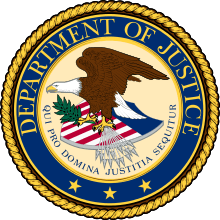Wayne MacVeagh
| Isaac Wayne MacVeagh | |
|---|---|
 | |
| 36th United States Attorney General | |
|
In office March 5, 1881 – December 15, 1881 | |
| President |
James A. Garfield Chester A. Arthur |
| Preceded by | Charles Devens |
| Succeeded by | Benjamin H. Brewster |
| United States Ambassador to Italy | |
|
In office March 11, 1894 – March 4, 1897 | |
| President | Grover Cleveland |
| Preceded by | William Potter |
| Succeeded by | William F. Draper |
| United States Ambassador to Turkey | |
|
In office October 25, 1870 – June 10, 1871 | |
| President | Ulysses S. Grant |
| Preceded by | Edward J. Morris |
| Succeeded by | George H. Boker |
| Personal details | |
| Born |
April 19, 1833 Phoenixville, Pennsylvania, U.S. |
| Died |
January 11, 1917 (aged 83) Washington, D.C., U.S. |
| Resting place | Church of the Redeemer Cemetery, Bryn Mawr, Pennsylvania, U.S. |
| Political party | Republican, Democratic |
| Spouse(s) |
Letitia Lewis MacVeagh (1st wife) Virginia Cameron MacVeagh (2nd wife) |
| Relations |
Franklin MacVeagh (Banker) |
| Children |
Charles MacVeagh (U.S. Ambassador to Japan) |
| Parents |
Major John MacVeagh Margaret Lincoln MacVeagh |
| Alma mater | Yale University |
| Profession | Lawyer, Politician |
| Religion | Methodist |
| Military service | |
| Service/branch |
Militia Union Army |
| Years of service | 1862–1863 |
| Battles/wars | American Civil War |
Isaac Wayne MacVeagh (April 19, 1833 – January 11, 1917) was an American lawyer, politician and diplomat. He served as the 36th Attorney General of the United States under the administrations of Presidents James A. Garfield and Chester A. Arthur.[1]
Biography
MacVeagh was born in Phoenixville, Pennsylvania, on April 19, 1833, the son of Major John MacVeagh and Margaret (née Lincoln) MacVeagh. His brother, Franklin MacVeagh, was a banker and U.S. Secretary of the Treasury under President William Howard Taft.
He attended Yale University, where he was a brother of the Delta Kappa Epsilon fraternity (Phi chapter), and graduated tenth in his class in 1853. He was admitted to the bar in 1856, and was the District Attorney of Chester County, Pennsylvania, from 1859 through 1864.[1] He led the militia forces organized to battle back the threatened Confederate invaders from 1862 to 1863, and served in the Union Army during the American Civil War as an infantry captain and as a major in the cavalry.[1]
He became a leader in the Republican Party and was the prominent opponent of his father-in-law, Simon Cameron, in the fight within the party in 1871.[1] MacVeagh was the Ambassador to the Ottoman Empire in 1870 through 1871, and was a member of the state constitutional convention of 1872 and 1873.
In 1875, MacVeagh co-founded the Philadelphia-based law firm known today as Dechert LLP.[2] He also served as Chairman of the MacVeagh Commission, sent in 1877 by President Rutherford B. Hayes to Louisiana, which secured the settlement of the contest between two existing state governments and thus made possible the withdrawal of U.S. troops from the state.
MacVeagh served as the 36th Attorney General in 1881 under President James A. Garfield. He resigned after President Garfield's assassination. Chester Arthur was to be 21st President and MacVeagh served as a cabinet member.
In 1892, he supported Grover Cleveland, the Democratic nominee for the presidency, and from 1893 to 1897 he served as Ambassador to Italy. He returned to the Republican Party in 1896. In 1903, he was an chief counsel of the United States before the Hague tribunal in the case regarding the claims of Germany, Britain and Italy against the republic of Venezuela.
Personal life
MacVeagh married Letitia Miner Lewis, in 1856. They had one son, Charles MacVeagh (June 6, 1860 – December 4, 1931), who became the Ambassador to Japan.
In 1866, after his first wife's death, he married the former Virginia Rolette Cameron, a daughter of U.S. Secretary of War Simon Cameron.
MacVeagh died in Washington, D.C., on January 11, 1917. He was buried at the Church of the Redeemer Cemetery in Bryn Mawr, Pennsylvania.
See also
References
External links
| Wikimedia Commons has media related to Wayne MacVeagh. |
- The MacVeagh Family Papers, including papers, notes, newspaper clippings and correspondence spanning much of Wayne MacVeagh's life, are available for research use at the Historical Society of Pennsylvania.
 This article incorporates text from a publication now in the public domain: Chisholm, Hugh, ed. (1911). "article name needed". Encyclopædia Britannica (11th ed.). Cambridge University Press.
This article incorporates text from a publication now in the public domain: Chisholm, Hugh, ed. (1911). "article name needed". Encyclopædia Britannica (11th ed.). Cambridge University Press.- http://www.findagrave.com/cgi-bin/fg.cgi?page=gr&GRid=15611773
| Diplomatic posts | ||
|---|---|---|
| Preceded by Edward J. Morris |
United States Ambassador to the Ottoman Empire October 25, 1870 – June 10, 1871 |
Succeeded by George H. Boker |
| Preceded by William Potter |
United States Ambassador to Italy March 11, 1894 – March 4, 1897 |
Succeeded by William F. Draper |
| Legal offices | ||
| Preceded by Charles Devens |
U.S. Attorney General Served under: James A. Garfield, Chester A. Arthur March 5, 1881 – December 15, 1881 |
Succeeded by Benjamin H. Brewster |
